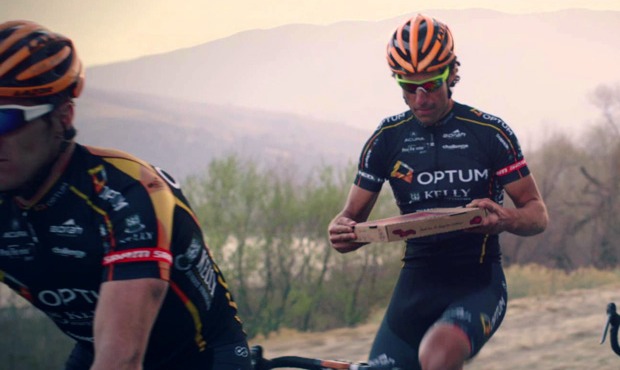
You’ve learned as an endurance athlete just how many grams of macronutrients you need to perform at your top potential. Surprised by the carbohydrate requirements you struggle to feel like eating is not a job at times, I get it. I’ve been there. It takes attention to be on top of your nutrition as an endurance athlete, especially if you really have a lot of volume in your training, but there are healthy, and tasty ways to maintain the nutrition you need as a cyclist.
You do your best to keep it “healthy” but are constantly full as you over do the fiber and bulky foods. What are some solutions to enable you to train hard and feel fueled rather than bloated on the start line? Read on.
Often times, once I’ve taught an athlete just how much fuel they actually need to train and perform consistently day after day, it can seem like a lot. For some it’s exciting, they love to eat! For others it can become almost cumbersome. Those who want to succeed however, realize that it’s imperative to have good nutrition in order to train hard, gain power and perform well, time after time. In other words, it’s a non-option for performance success, so you create a plan.
Intake and Timing
Part of the issue of feeling “too full” and “bloated” can be related to the timing of nutrient intake. If an athlete is consuming a full meal an hour before a solid training ride, they are going to wreak some havoc on their guts as the digestion will still be underway while the blood is being called to the muscles for work. We’ve all felt it. You start the ride too soon after eating only to think “oh man I’m still full” and you often end up burping your meal for the first hour of that ride. Wonderful…not really!
Keep a few things in mind here. If you are limited on time until you train, keep your carbohydrate intake to 100 g and under in that last hour. Limit your fat and protein intake in the last hour before training, in order to allow for faster gastric emptying and easier digestion. Keep the fiber on the lower end overall. You want that snack out of your stomach when you clip in.
If you have 3 hours before a training ride, you can have a pretty normal balanced meal; think eggs, oatmeal, berries, yogurt, cereal etc. However, when you are sandwiching a workout with meals, (pre-race and post-race meal) you should ease up a bit on the fiber and fat in order to have the meal digest a bit more quickly, especially if bloating and fullness is an issue for you. This is an excellent reason to test different meals before hard training rides, so that you figure out which meal sits well with you. Use that meal on race day. Practice makes perfect. Have a few options in case your food choices are limited during travel.
Avoiding Bloating
Some common complaints of bloating and feeling too full can usually easily be rectified by changing the type of carbohydrate you consume on days that require higher intakes. Although so many athletes really want to keep it “ultra-healthy”, the reality is a big salad with broccoli, cheese, beans, cauliflower and meat and quinoa may be exactly what you DON’T need. It’s a lot of fiber and meat that takes a long time to digest. For some it sits quite well, for others it’s a big no.
We are not carbon copies of one another. Don’t follow your training partner’s nutrition, they may have very different reactions than you to foods.
Pre-Race Meal Ideas
So what are some good options for that high carb pre training ride or race day meal that can really cut down on the bulk while supplying you with lower fiber, lower fat and optimal protein requirements? As each athlete needs different grams of carbs, protein and fats these examples are simply that, examples. Calculate your carbohydrate needs and adjust these breakfast, pre training/race options based on your needs.
The athlete is 3 hours before a race (over 90 minutes in duration) or hard training ride. This athlete would also likely be having a small snack in the last hour before the race. This allows for having a bit of a smaller breakfast and then topping up in the last hour with a sports drink and something simple like a gel, banana, potato or similar easy to digest carbohydrate. The athlete has also carbohydrate loaded the day before the race/event.
The range of carbohydrates I’m going to use is 120-150 grams of carbohydrates, around 20 grams of protein and approximately 5-10 grams of fat (not too high), to allow for a bit quicker digestion. There will still be some fiber, but it won’t be an overload of bulky foods.


